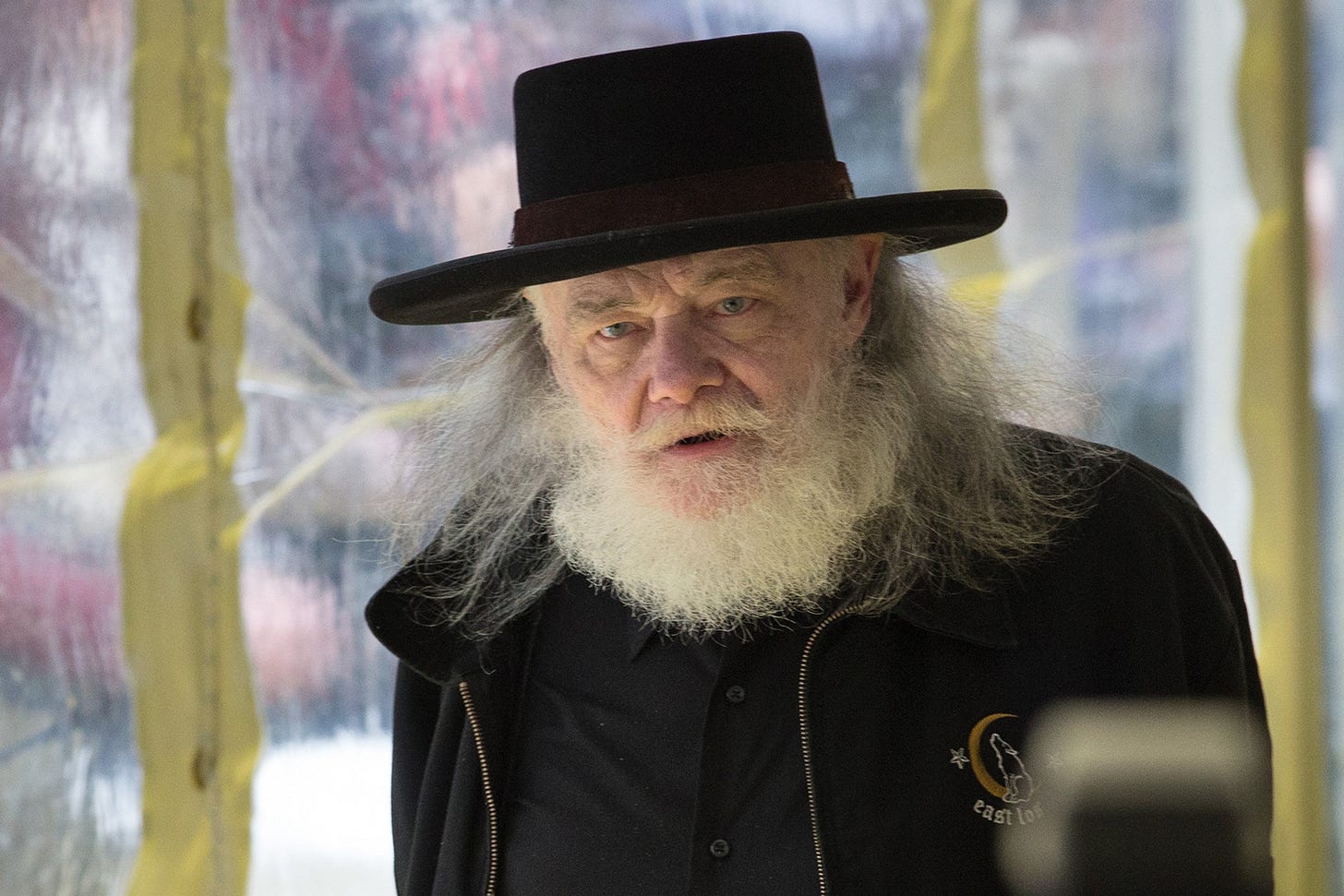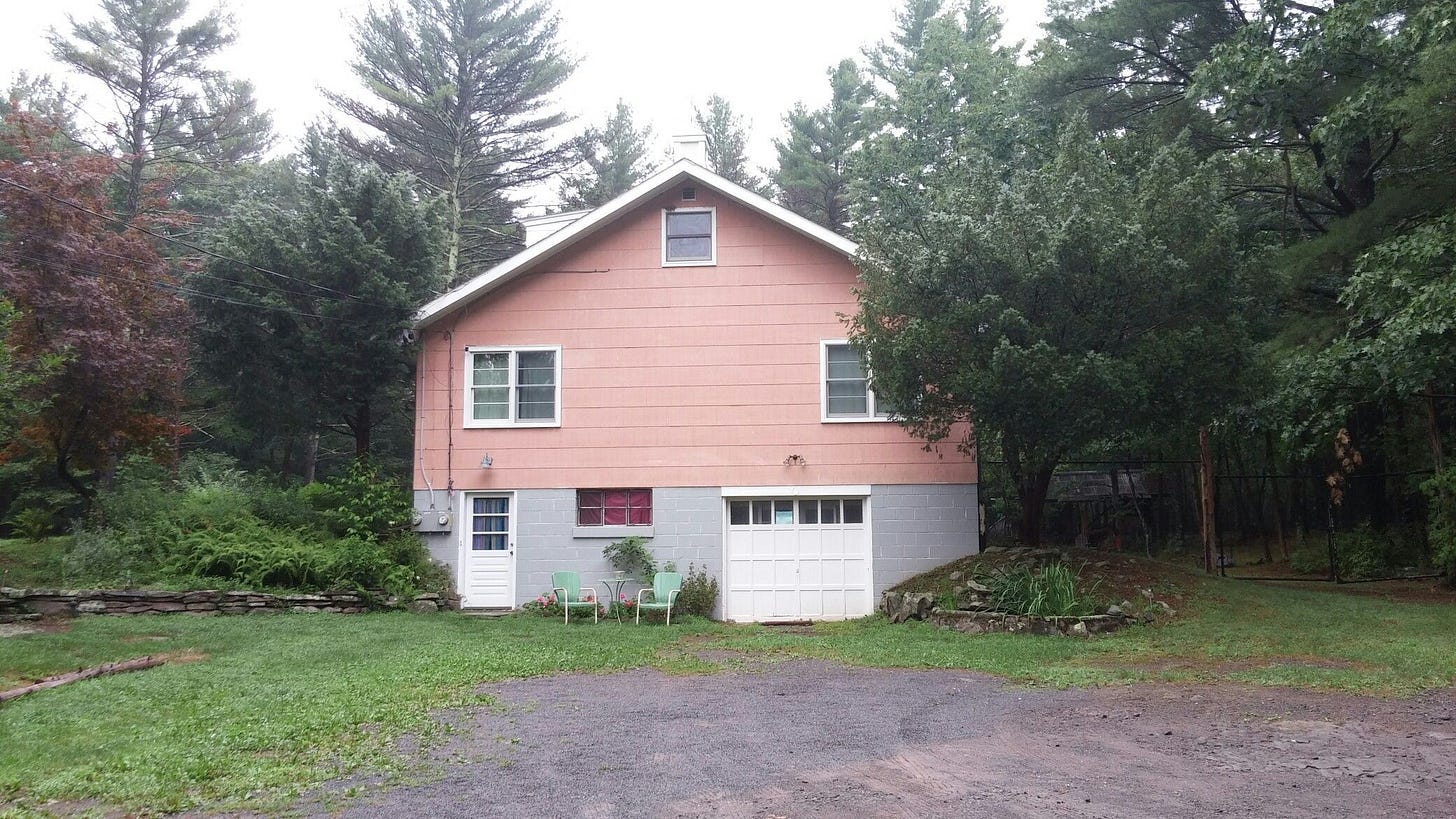Garth Hudson, the last surviving member of The Band, died today.
My remembrances in these situations could come across as morose, I suppose. I don’t see it that way though. Remembering important people and the things they have done is, in fact, celebratory.
I confess to have had something of a ‘who’s on first’ sort of moment when someone told me Bob Dylan’s band (at a certain point) was The Band. ‘Yeah, what are they called?’
For lovers of American Roots music, there is something special about The Band (ironically a bunch of Canadians with only one real hillbilly from Arkansas among them, Levon Helm).
As Greil Marcus tells the story in Invisible Republic (1997), when Dylan and The Band retreated to the house they called Big Pink in 1967, they delved deeply into the sorts of tunes assembled by Harry Smith on his Anthology of American Folk Music (1952), with alchemical drawings and arcane references in the liner notes.
Big Pink and the basement where The Basement Tapes were recorded.
According to Marcus, what they tapped into was a very unofficial America, the America of “Skip James of Mississippi, Buell Kazee of Kentucky, Mississippi John Hurt, Eck Robertson of Arkansas, Son House of Mississippi, Dock Boggs of Virginia, Clarence Ashley of North Carolina,” this was what he termed “the old, weird America” and “the invisible republic.”
Frankly, The Philosopher’s Holler is in fact located within the geography of that mysterious land.
This was a mystical land of “country over the city, labor over capital, sincerity over education, the unspoiled nobility of the common man and woman over the businessman and the politician.” Or, sort of. That was the Folk Revival, but what Dylan and the Band got into at Big Pink was deeper and more nuanced.
What is intriguing to me is they did not come out of there, primarily, singing the old songs. They came out writing new songs that were unfathomably deeply in dialogue with the old songs- they had entered into the invisible republic and created new music from within it.
From the basement:
The Band, 'Up on Cripple Creek’ (note, this had YODELING in it- proof they were delving deep into the old stuff; who was yodeling in the 60s?):
With Dylan:
And my favorite, which has also become controversial in recent years. Controversial because people say it plays into the ideology of ‘the lost cause’ as relates to the American Civil War as experienced by Southerners. I think I will need to write about that some time as there is an issue there, but as you know, I revere the South in terms of the music it has produced and many of its varied cultures. There is an issue there, but we need to be able to handle nuance. The South was in fact the place where the races met. It was also, until the middle of the twentieth century, the bastion of American agriculaturalism (vs industrialism) and many other worthwhile ideals counter to the dominant, official, corporate, America. America is deep and complicated like that and we’d better learn to create from authentic roots.
‘The Night They Drove Old Dixie Down’:
The Bands (and Dylan’s) achievement represents a distillation of utopia (the invisible republic) out of nearly forgotten folk tradition: the harmony of revolution and Tradition- Amen brothers and sisters!






There are some pieces on Substack that are so rich and luxurious in their passion, language and thought that reading them is sheer pleasure. Bravo!
> new songs that were unfathomably deeply in dialogue with the old songs
Great description!
A buddy I knew years ago in the indie music scene would cover "The Night They Drove Old Dixie Down" frequently. I also didn't know of Garth Hudson's passing today, nor that he was the last surviving member of The Band. I already have tomorrow's article of mine written, and I lead with a Bob Dylan tune, pre-The Band, though.